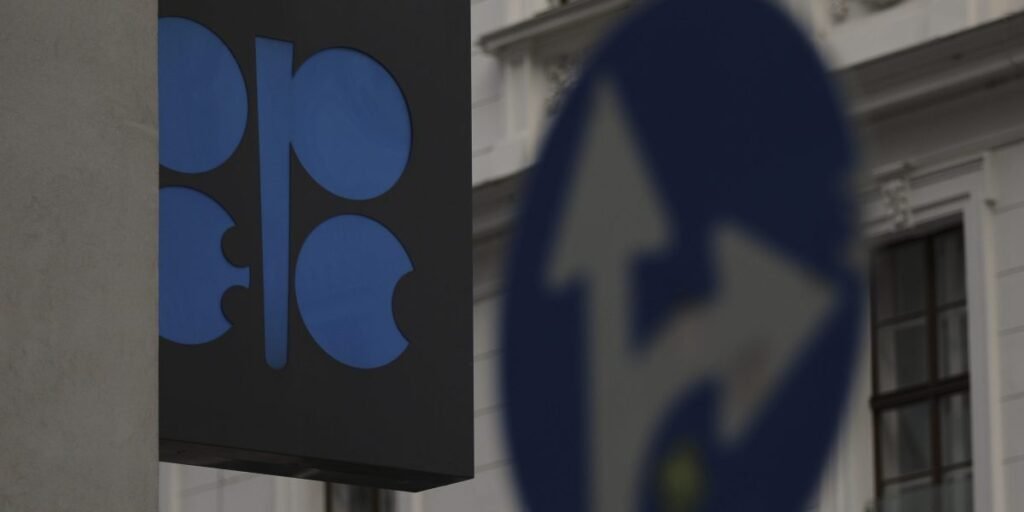
OPEC+ agreed to delay a December production hike by a month, the second delay in plans to boost supply, as prices continue to struggle amid a fragile economic outlook.
The group led by Saudi Arabia and Russia had planned to begin a series of monthly output increases starting in December by adding 180,000 barrels a day, but will now keep supply capped that month, according to a statement on OPEC’s website on Sunday.
The restart had already been delayed since October due to worsening demand in China and increasing supplies under pressure from America. Brent futures have fallen 17% in the past four months to trade near $73 a barrel, too low for the Saudis and many other OPEC+ members to cover government spending.
“Market conditions won,” said Harry Tchilingurian, head of oil research at Onyx Commodities Ltd. “OPEC+ showed it could not ignore the current macroeconomic realities centered on China and Europe, which point to weaker oil demand growth.”
A delay can do little to strengthen the market, as it has been many traders anticipate. Global markets will still be oversupplied next year, even if the OPEC+ alliance refuses to increase supplies, the International Energy Agency in Paris has estimated. Citigroup Inc. and JPMorgan Chase & Co. sees prices entering $60 in 2025.
The OPEC+ move is “slightly positive,” analyst Giovanni Staunovo said The UBS group AG in Zurich. The market, meanwhile, will focus on Iran’s response to Israel’s attacks and the US election results, he said.
The crude market has largely shrugged off a year of conflict in the Middle East, including Israel’s latest retaliatory strike against Iran, as traders grow more confident that regional oil shipments will not be affected.
That poses a financial threat to Riyadh, which needs price levels closer to $100 a barrel to cover the ambitious economic plans of Crown Prince Mohammed bin Salman, according to the International Monetary Fund. The kingdom’s oil market partner, Russian President Vladimir Putin, also needs funds for the war against Ukraine.
“For me, the impact is more important in sentiment than in numbers,” said Amrita Sen, director of research at consultancy Energy Aspects Ltd. “The market has misjudged that OPEC+ wants to flood the market to regain market share,” but instead, their “primary focus remains on keeping oil inventories under control.”
In June, the Organization of the Petroleum Exporting Countries and its partners outlined a roadmap to gradually restore in monthly installments the 2.2 million barrels per day that have been frozen over the past two years.
However, worsening fundamentals have scuppered their plans, with Chinese demand suffering a four-month contraction and supplies rising in the US, Brazil, Canada and Guyana. USA oil productionIn August, it jumped to a new record of 13.4 million barrels per month.
“Given all the geopolitical tension in the Middle East and, perhaps more importantly, the upcoming US presidential election, it makes perfect sense for OPEC+ to delay the unwinding of voluntary cuts for another month,” said Jorge Leon, senior vice president. Consultant Rystad Energy AS.
OPEC+ has struggled to implement part of the supply cuts agreed to by some members — Russia, Iraq and Kazakhstan in particular. The trio has promised to deliver better, and to make additional limits to compensate for overproduction, but in general they have been pumping above their quotas.
The 23-nation alliance will meet on December 1 to review the policy for 2025.
Join the brightest minds and boldest leaders in business at the Fortune Global Forum, which will convene on November 11th and 12th in New York. Thought-provoking sessions and off-the-record discussions include Fortune 500 CEOs, former cabinet members and global ambassadors, and 7-time world champion Tom Brady, among many others.
See the full agenda hereor request your invitation.

